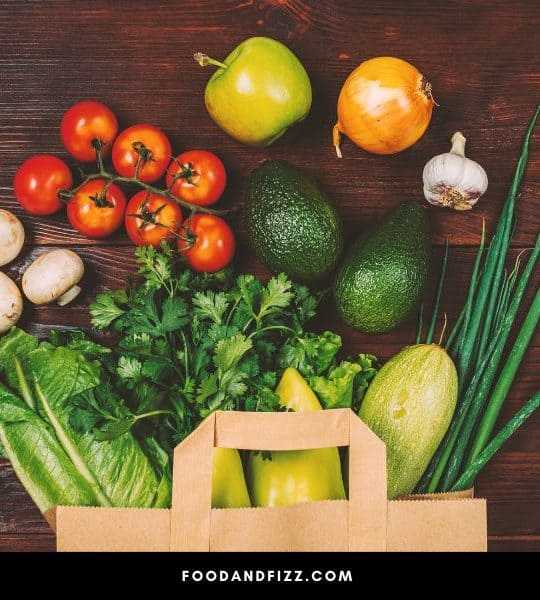Citric acid is a naturally-occurring acid in citrus fruits that is used to flavor and preserve food. It is naturally present in a lot of fruits and vegetables in varying amounts, and it is a common additive in processed food.
Though uncommon and not a lot is known about it, some people have reported a sensitivity or intolerance to citric acid.
If you are one of those people who are trying to avoid citric acid, what do you do?
What food can you have that does not contain citric acid?
Foods Without Citric Acid
Citric acid is a natural byproduct of cellular respiration in plants and is thus naturally occurring in all fruits and vegetables. However, some contain lower amounts compared to others. Coconuts, apples, bananas, spinach, and mushrooms all contain low levels of citric acid, as do rice, unprocessed meat, unflavored green tea, and pure water.
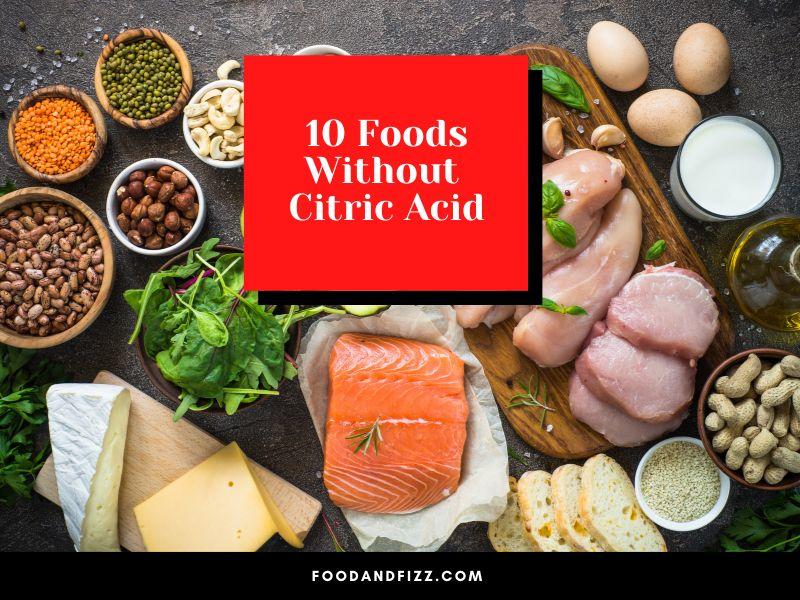
10 Foods Without Citric Acid
Citric acid seems to be everywhere and it would seem like we cannot escape it no matter how hard we try.
There are still, however, some foods that are naturally lower in or almost free from citric acid. We’ll look at some of them.
1. Pure Water
It may not sound as exciting but water is at the heart of everything we consume. All fruits and vegetables, all animals and even us humans are all dependent on water for our survival. Even our own bodies are made up of mostly water. It is an essential component that keeps everything alive.
Pure, unflavored water is neutral on the pH scale and is naturally citric acid-free. Even if you are not trying to avoid citric acid, consuming enough glasses of pure water daily is necessary for optimum health.
2. Unflavored Green Tea
Most processed teas, especially herbal and fruit teas, would have added citric acid as a preservative or flavor enhancer, but unflavored green tea is naturally citric acid-free.
Green tea contains antioxidants that may help prevent cardiovascular diseases and keep cancer at bay. It supports brain health, helps with weight loss, and boosts immunity. It contains a lot of healthy compounds that support and promote health.
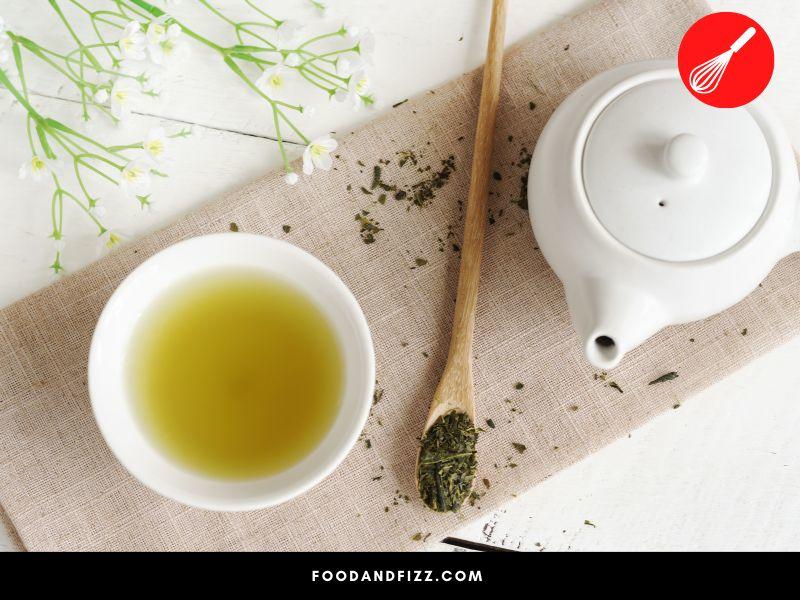
3. Rice
Rice, in its purest form, as well as other grains except for corn, are naturally low in citric acid. Rice-derived products, though, like rice milk, ice cream, bread, cereals, and pasta may have added citric acid depending on the brand or how it was processed. Checking ingredient labels is always important.
4. Coconuts
Coconuts are a healthy source of fat that contain MCTs or medium-chain triglycerides that are known to be more easily absorbed and processed by the human body.
It is high in fiber and contains vitamins and minerals that help with vital processes in the body to help prevent disease. Coconuts are anti-fungal, anti-bacterial, anti-microbial, and low in citric acid. They are a good addition, in moderation, to a healthy diet.
5. Apples
Apples are low in citric acid and contain significant amounts of fiber and antioxidants. They reduce the risk for stroke and promote heart, lung, brain, and gut health.
They also help boost immunity which protects us from getting sick, which is probably why they say an apple a day keeps the doctor away.
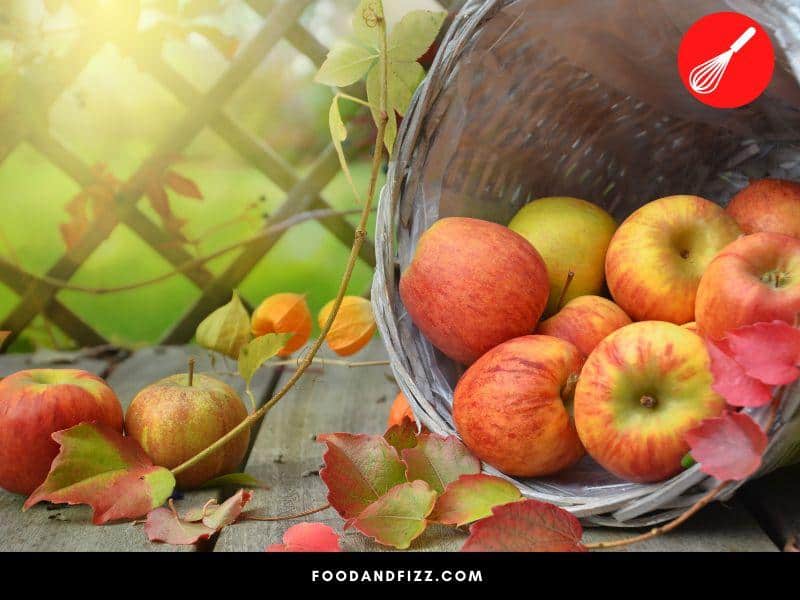
6. Bananas
Bananas are another low-citric acid food. It contains significant amounts of fiber, potassium, and manganese, and helps with digestion and other gut issues.
Vitamin B6 is also in abundance in bananas, and they are also awesome for your skin.
7. Mushrooms
Mushrooms are a great alternative source of protein for vegetarians and are low-calorie and versatile in the kitchen. They also contain fiber and antioxidants that help prevent diseases.
They are among the healthiest things you can add to your diet, and certain variants like shiitake mushrooms, are used a lot in medicinal cooking.
8. Spinach
Spinach is rich in iron, vitamins E and K, calcium and magnesium, and other vitamins and minerals that boost our immune system and support our health. They are naturally low in calories and can be served raw or cooked.
9. Almonds
Almonds are so versatile and can be enjoyed on their own, can be ground up into flour, or made as a plant-based alternative to milk. (Read: How to Pasteurize Almond Milk)
They can be added on top of desserts, added to stir-fries, or covered in melted chocolate. Almonds contain tons of fiber, help with regulating blood pressure, and are known to protect against heart disease.
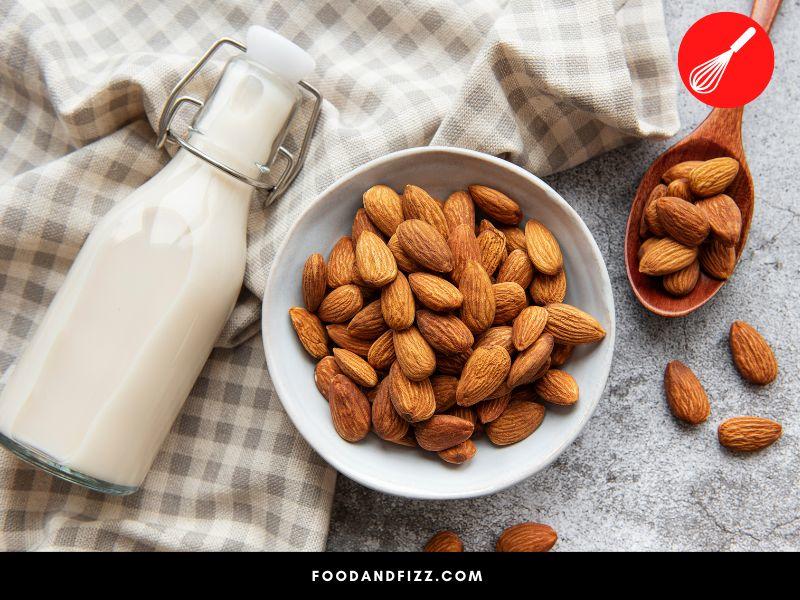
10. Unprocessed meats
Citric acid is often used on meat to preserve it, tenderize it, and delay spoilage. If you are able to source from a reputable meat butcher, it may be possible to get fresh, unprocessed meat that is not treated with citric acid.
There are many other foods that are low in citric acid that can be considered almost citric acid-free. While citric acid is difficult to avoid, it is not completely impossible.
It is important to always read labels and check ingredients to make sure you are not getting citric acid in one of its many disguised forms.
What is Citric Acid?
Citric acid is considered a weak acid, measuring between 3-6 on the pH scale, and is naturally found in citrus fruits like lemons and limes. It is what gives citrus fruits their characteristic sour taste.
It is a natural byproduct of cellular respiration and is one of the essential components in the effective utilization of energy from food in plants and in all breathing, living organisms, including humans. It is produced through a process called the Citric Acid Cycle or the Krebs cycle.
Uses of Citric Acid
Citric acid is used as an additive to enhance flavor, an emulsifier to improve consistency, make food and drinks last for a long time, and add a sour taste to food.
It is a common preservative in soda, canned food, and candies, and is often sprayed on fruits and vegetables to make them last longer.
In non-food applications, it is used as an ingredient in household products that disinfect and prevent the build-up of dirt and grime and as an ingredient in cosmetic and personal care products to help with skin health.
Citric acid is also used as an ingredient and disinfectant in some supplements that treat kidney issues.
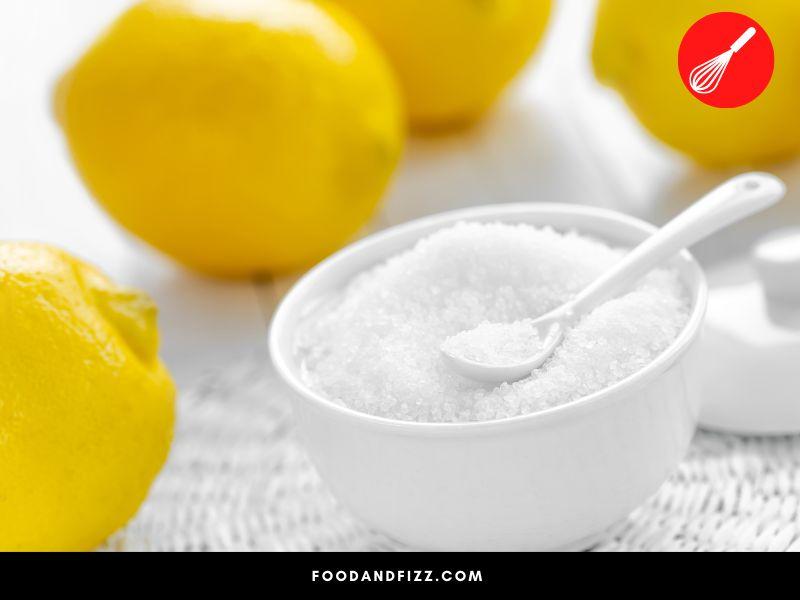
Other Names for Citric Acid
Citric acid is also known as “sour salt” in the cooking world, or “Sodium citrate” on ingredient labels.
How Is It Produced?
Citric acid is naturally found in citrus fruits, particularly lemons and limes, but most of the citric acid that is commonly used as an additive and preservative is commercially manufactured.
It is made by fermenting yeast and fungus using molasses or sugar or other starchy carbohydrates and then harvesting the citric acid by-product.
The fungus that is used to do this is actually black mold, which effectively converts sugars into citric acid. This fact can understandably be a little unsettling, but citric acid produced in this way is considered by the FDA to be safe.
Read about drinks without citric acid.
Some Personal Remarks
Citric acid is everywhere and while it may seemingly be unavoidable, it is not totally impossible to go without it. There are still foods out there that are free from citric acid or contain only trace amounts for it to hopefully not have a significant effect.
If you have a sensitivity or intolerance to citric acid, it is always important to keep yourself informed with the latest safety research and to always be responsible in checking food labels diligently to check for citric acid or any of its derivatives.
It is also important to always check the source of your food and how it is processed and prepared, and to always check for ingredients used especially if you are eating at a restaurant.
As with any kind of food intolerance or sensitivity, preparation and caution are key to ensuring your safety.
Frequently Asked Questions About Foods Without Citric Acid
What Fruits and Vegetables Do Not Have Citric Acid?
Citric acid is found in almost all fruit and vegetables as it is a natural byproduct of cellular respiration and metabolism. Some examples of low citric acid fruits and vegetables include coconuts, apples, avocados, bananas, spinach, carrots, eggplants, and zucchini.
What Are Non-Citrus Vitamin C Foods?
Vitamin C is not just found in citrus fruits. Some examples of non-citrus vitamin C foods are cauliflower, spinach, apples, papaya, and bananas.
Citric acid is everywhere and while it may seemingly be unavoidable, it is not totally impossible to go without it. There are still foods out there that are free from citric acid or contain only trace amounts for it to hopefully not have a significant effect.
If you have a sensitivity or intolerance to citric acid, it is always important to keep yourself informed with the latest safety research and to always be responsible in checking food labels diligently to check for citric acid or any of its derivatives.
It is also important to always check the source of your food and how it is processed and prepared, and to always check for ingredients used especially if you are eating at a restaurant.
As with any kind of food intolerance or sensitivity, preparation and caution are key to ensuring your safety.
Conclusion to Foods Without Citric Acid
The following foods have a low concentration of citric acid:
- Coconuts
- Apples
- Bananas
- Spinach
- Mushrooms
- Rice
- Unprocessed meat
- Unflavored green tea
- Water

